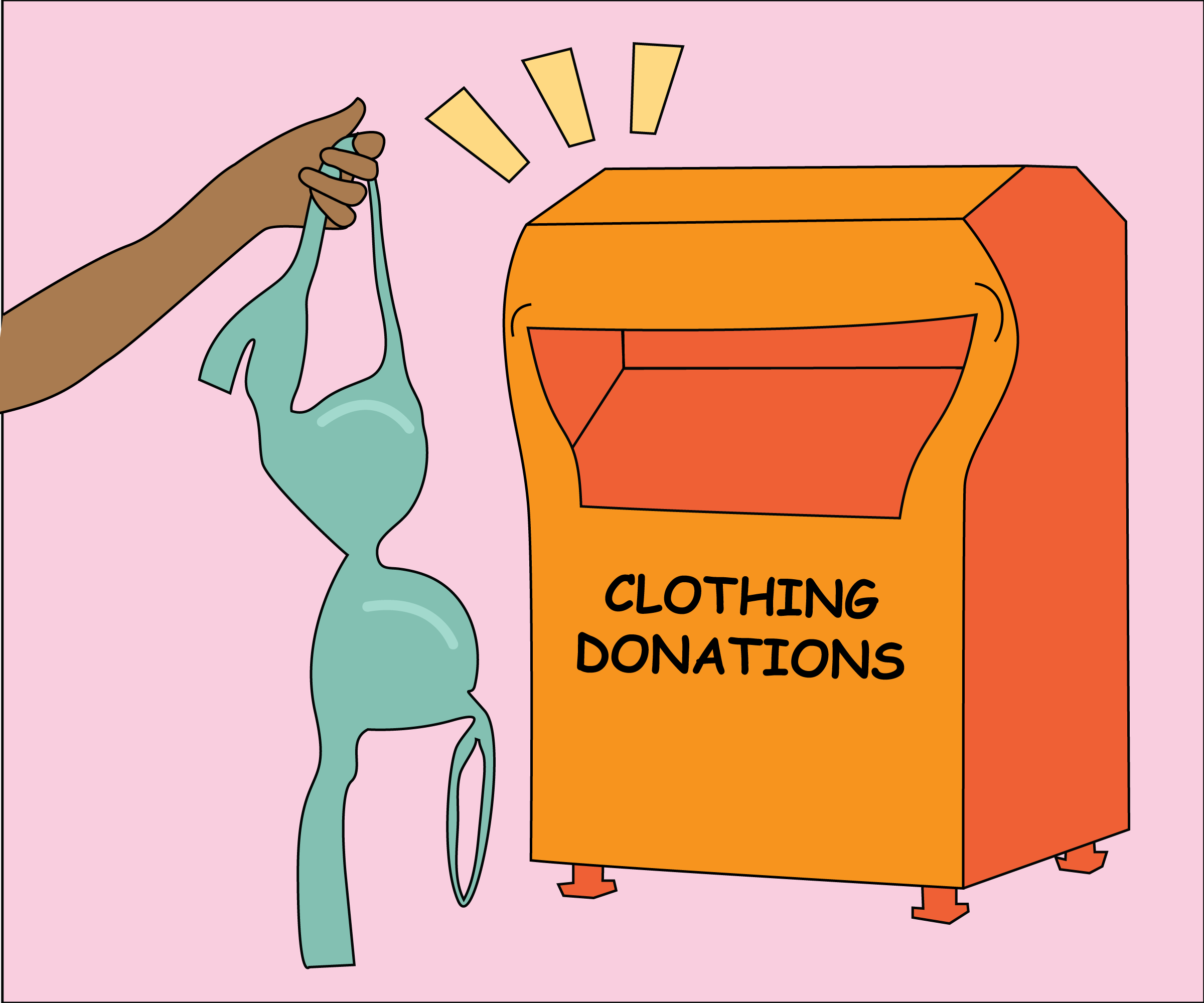Improve lives and make a difference by donating to shelters
As the production of the garment industry has evolved over the decades, it has become a commonality to constantly rotate our closets as the seasons change. For that reason, more and more of our clothes accumulate in the “reject pile.” Although those items may seem meaningless, they are valuable in the eyes of many women who live in shelters.
Sally Richmond, the executive director of Logifem, one among dozens of women’s and children’s shelters in Montreal, explained that they are constantly looking for goods to give to their residents. Originally from the United Kingdom, Richmond completed her academic education in Montreal and earned her general master’s of business administration (MBA) from Concordia’s John Molson School of Business. Being consistently drawn to current social issues, she devoted her career to supporting those in need.
Logifem is a non-profit organization and housing program that accommodates women and girls facing difficulties and living under strenuous circumstances. Whether their situations are due to domestic abuse, struggles with mental health, immigration issues or any other material insecurity, Richmond said the main purpose of the shelter is “to empower women and girls to face the future with hope and dignity.”
Donated items are displayed in Logifem’s boutique, which is open exclusively to its residents. Richmond emphasized the importance of bringing in goods that are in decent condition. “When we get [clothes] in poor conditions, we have to ship them out to [second-hand] stores, but that ends up costing us money because we have to pay the shipping fees,” she explained. Donating is a gesture that is much more valuable and appreciated when it is in the best interest of others, and that can be achieved by carefully sorting the unwanted items beforehand.
Oftentimes, Logifem lacks various essential supplies. In the past, they’ve turned to Facebook to announce their need for specific products, such as unworn undergarments and unopened toiletries. Richmond recalls being pleasantly surprised with the feedback. “There was a much bigger response than we anticipated.” People from all across the country sent in packages of brand new underwear and other items listed in the Facebook post, and some packages were even sent anonymously. “The support was so organic,” she said.
Richmond mentioned that some donors who return regularly—typically annually or biannually—have begun to form a relationship with the members of the organization. “They become a part of our family,” she said.
Donating articles of clothing is not merely giving material objects to other people. Giving contributes to the well-being and stabilization of another life. “People need these things because they come with very few possessions,” Richmond explained. “But oftentimes they really just need a little boost—something for them to feel nice in.”
In our city, on many street corners and alleys, there are those who are less fortunate. The Native Women’s Shelter of Montreal, West Island Women’s Shelter, Chez Doris, La rue des Femmes and Maison Grise de Montréal are all within reach of Montrealers and could benefit from a range of donations, not just clothes. Anyone can lend a helping hand, and volunteers are always appreciated and welcomed.
Graphic by Ana Bilokin
